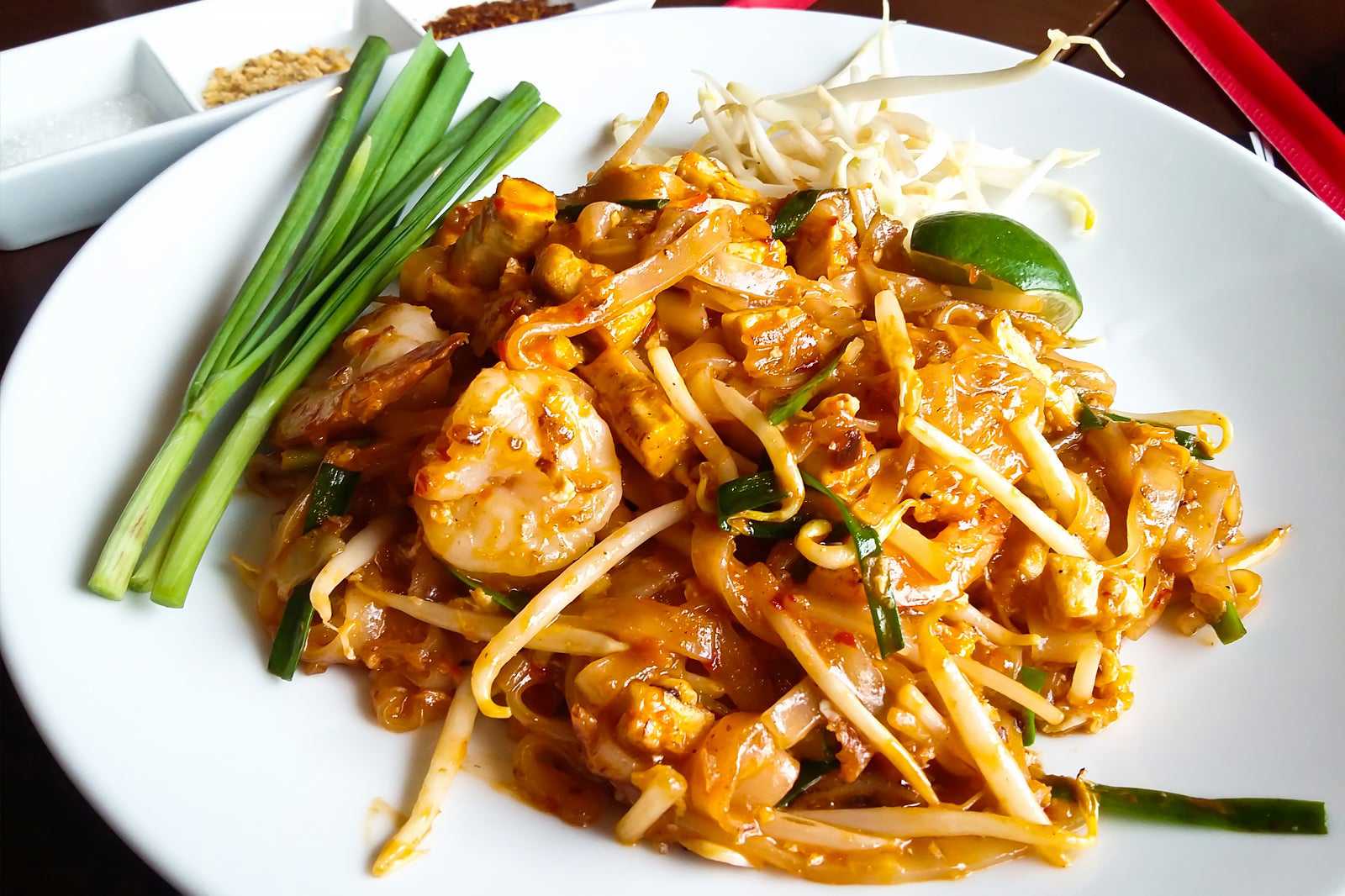The best Thai food for kids in Koh Samui usually contain little to no chilli. After all, children of any nationality aren’t introduced to spicy food before they show interest in it.
Your little ones will certainly enjoy their holiday in Koh Samui enjoying these favourite Thai dishes. In case they would like to eat something else, western food is also very popular and can easily be found on the island, as well as throughout Thailand in general.
- 1
Satay
Grilled meat on skewers

- Gastronomía
Satay is a dish of seasoned grilled meat served on a wooden skewer. In Thailand, commonly used meats are chicken, beef, and pork. You can also find a vegan version of satay using tofu. It's usually served with a delicious peanut sauce and green salad.
Coming from Java Island (Indonesia) in the early 19th century, satay has conquered the taste buds of everyone in Southeast Asia. This street food can be found in most countries, from Malaysia and Singapore to the Philippines and Thailand.
- 2
Khao man gai
Delicious Thai chicken and rice

- Gastronomía
Khao man gai (chicken rice) is the Thai version of Hainanese chicken with rice. The chicken is stuffed with onion, garlic and ginger before being steamed, while the skin and fat are slowly cooked over low heat. Garlic is added to the fat to make garlic oil, which is then mixed with the rice in a rice cooker.
Khao man gai is usually served with raw vegetables (salad, spring onion, cucumber), a spicy sauce blending chilli and garlic, and a clear chicken broth with herbs. It's absolutely delicious without being spicy. This affordable dish is often enjoyed for lunch or dinner in many Thai restaurants in Koh Samui.
- 3
Khao pad
Thai fried rice

- Gastronomía
Khao pad (fried rice) is certainly one of the most popular dishes for first-timers in Thailand. It's almost considered a western dish despite its Chinese origin. Fried rice is made of steamed rice stir-fried in a wok with other ingredients like vegetables, eggs, and meat or seafood (chicken, pork, or prawns). Children and picky eaters can enjoy this meal as it usually has little to no chilli.
If you are really hungry, a variant recipe specially created for foreigners is the khao pad American – ketchup and raisins are added to the rice, which is served with a sunny-side-up egg, ham, deep-fried chicken and sausage on the side.
- 4
Kai jiao
Thai omelette

- Gastronomía
Kai jiao (omelette) is certain to please most children and picky eaters in Koh Samui. It's available in almost every Thai restaurants, usually served with rice and a few drops of soy sauce. For something more filling, you could opt for an omelette stuffed with vegetables and meat.
- 5
Roti
Asian pancakes

- Gastronomía
Originating from India, roti (which means "bread" in Sanskrit) is the Asian version of a pancake. This flatbread, made of stoneground whole-wheat flour, makes for a nice dessert or filling snack. In Thailand, roti is often stuffed with different fillings, such as banana slices or egg, or drizzled with condensed milk. If you have a sweet tooth, you can get your roti drizzled with chocolate syrup or Nutella.
- 6
Deep-fried chicken with sticky rice
An easy and delicious treat

- Gastronomía
Khao niao gai tod (deep-fried chicken with sticky rice) is a very popular dish in Thailand that usually accompanies som tam, a spicy green papaya salad. Chicken cuts (breast, wings, drumsticks, and thighs) are deep-fried or barbecued and served with glutinous rice. Children usually love this easy-to-eat dish as it doesn’t contain any spice.
- 7
Gaeng jued
A clear and tasty Thai soup

- Gastronomía
Gaeng jued is a very clear yet tasty soup usually served as a side dish in Thailand. It's made of Napa cabbage, carrots, baby corn, onion, garlic, mushroom and cilantro, to which minced pork balls and tofu are added.
When gaeng jued is served as a main dish, it usually contains glass noodles to make it more filling. The soup has a very subtle taste that could please most people, even children.
- 8
Pad thai
Stir-fried noodles

- Gastronomía
Pad thai is a traditional Thai dish introduced to Thailand between the 14th and 18th centuries (some believe it could have Chinese origins). The dish contains stir-fried rice noodles, egg, firm tofu, garlic, shallot, fish sauce, and dried shrimp.
You can choose the meat/seafood (chicken, prawn, crab or squid) to complement the basic ingredients. It's usually served with lime wedges and chopped roast peanuts. Pad thai is a very popular dish that can be found at any restaurant in Thailand.
- 9
Mango sticky rice
One of the most popular Thai desserts

- Gastronomía
Mango sticky rice is one of Thailand's most iconic desserts. While it's traditionally served during the mango season (April–May), you can now enjoy it year-round. Fresh mango slices are placed next to glutinous rice (or black Thai sticky rice) on a plate, then topped with a sweet sauce made of coconut milk, sugar and tapioca starch.
The sweetened coconut milk flavours the sticky rice, which enhances the taste of mango. While not a judicious choice of dessert for those on a diet, it's one of the freshest Thai treats. Mango sticky rice is called khao niao ma muang in the local tongue.
- 10
Khao tom
Rice soup

- Gastronomía
Khao tom, which literally means 'boiled rice' in Thai, is a flavourful soup similar to porridge. The rice is cooked directly in a broth made of ginger root, shallot, lemongrass and salt. You can add meat (pork or chicken), seafood or tofu to make it more filling.
This delicious porridge is usually served for breakfast, but you can have it for lunch or dinner. Khao tom is also the dish of choice for those who are ill as it's an easy-to-eat and healthy meal.



















